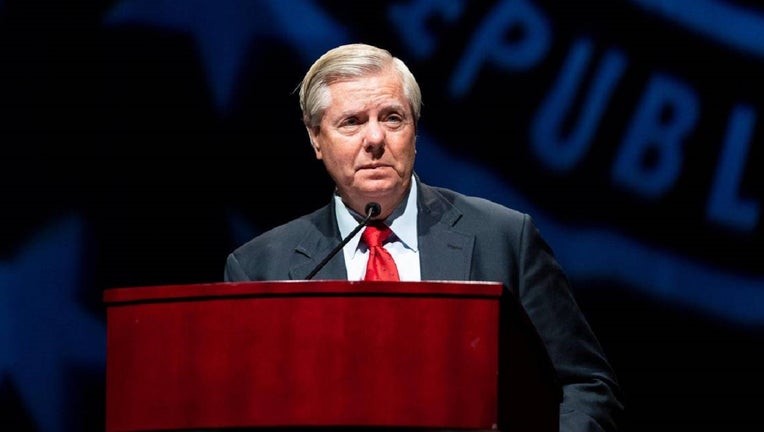Judge won’t let Graham delay testimony in Trump election probe

South Carolina Senator Lindsey Graham speaks to the Silver Elephant Gala at the Columbia Convention Center on Friday, July 29, 2022. (Joshua Boucher/The State/Tribune News Service via Getty Images)
ATLANTA - Sen. Lindsey Graham can’t put off his appearance before a special grand jury investigating whether then-President Donald Trump and others illegally tried to influence the 2020 election in Georgia, a federal judge said Friday.
Earlier this week, U.S. District Judge Leigh Martin May ordered Graham to honor his subpoena for the grand jury. Graham’s attorneys appealed that order to the 11th U.S. Circuit Court of Appeals and asked May to stay her ruling while that appeal plays out. May declined that request in her order on Friday.
Graham is currently scheduled to appear on Tuesday. But he still has another motion to stay May’s ruling pending before the 11th Circuit.
Representatives for Graham did not immediately respond to messages on Friday seeking comment.
Fulton County District Attorney Fani Willis opened the investigation early last year and in July filed petitions seeking to compel testimony from seven Trump advisers and associates, including Graham.
Attorneys for the South Carolina Republican have argued that a provision of the U.S. Constitution provides absolute protection against a senator being questioned about legislative acts. But the judge found there are "considerable areas of potential grand jury inquiry" that fall outside that provision’s scope. The judge also rejected Graham’s argument that the principle of "sovereign immunity" protects a U.S. senator from being summoned by a state prosecutor.
Graham also argued that Willis, a Democrat, had not demonstrated extraordinary circumstances necessary to compel testimony from a high-ranking official. But the judge disagreed, finding that Willis had shown "extraordinary circumstances and a special need" for Graham’s testimony on issues related to an alleged attempt to influence or disrupt the election in Georgia.
Willis and her team have said they want to ask Graham about two phone calls they say he made to Georgia Secretary of State Brad Raffensperger and his staff shortly after the 2020 general election. During those calls, Graham asked about "reexamining certain absentee ballots cast in Georgia in order to explore the possibility of a more favorable outcome for former President Donald Trump," Willis wrote in a petition.
Graham also "made reference to allegations of widespread voter fraud in the November 2020 election in Georgia, consistent with public statements made by known affiliates of the Trump Campaign," she wrote.
Republican and Democratic state election officials across the country, courts and even Trump’s attorney general found there was no evidence of voter fraud sufficient to affect the outcome of the election.

